Four years after becoming a world cultural heritage, the Bài Chòi singing style in the spiritual life of the Central region people has a new role - expanding the social security net.
"The participation fee condition/ Citizens from 15 years old are Vietnamese/ The contribution rate is 22%/ Not subject to mandatory subjects, we need to clearly understand/ The fund will receive pension in the future/ And the death benefit will be low or high depending on you... Invite everyone to play bai choi...", the performers shouted, holding bamboo cards and juggling to the music. Below, many spectators participated.
The Bai Choi festival on the 7th day of the Lunar New Year 2021 in the center of Tam Ky city, Quang Nam province attracted hundreds of viewers. The improvised lyrics about daily activities were changed in content, turning to talk about contribution levels, participation forms, and voluntary social insurance (VSI) benefits. The first performance opened a series of days of bringing policies to people through Bai Choi - a folk art form combined with folk games of the Central region recognized by UNESCO as an intangible cultural heritage of humanity in 2017.
Performing a card game to promote participation in voluntary social insurance in Hoi An City. Video : Hong Chieu
Artist Le Cong Danh, 55 years old, remembers the last day of 2020 when he received a series of documents from the leaders of Quang Nam Province Social Insurance with the request to convert the content of voluntary social insurance policy into folk song Bai Choi. This type of insurance is for freelance workers in the informal sector with two regimes: retirement and death.
At that time, Quang Nam had only over 17,000 people participating in insurance in this area. Meanwhile, the whole country had 1.1 million participants after more than 10 years of development, mainly freelance workers and farmers. Expanding the voluntary sector to reach 5% of working-age people by 2030 as the target set by Resolution 28 of the Central Committee has become a challenge.
The leaders of Quang Nam Social Insurance realized that each night of the Bài Chòi performance had thousands of viewers, mainly small traders, street vendors, and freelance workers - potential groups for the voluntary sector. The decision to promote social security policies through the Bài Chòi performance was immediately made.
In his memory, artist Cong Danh has heard the Bài Chòi tune since he could remember, when his father and uncles sang it every time the family gathered, at the beginning of spring, at village festivals. People from Quang grew up with the Bài Chòi tune, like a lullaby for people in the North, a folk song in the South. "But to convert the content of voluntary social insurance into Bài Chòi is really difficult. Reading it just makes my head feel refreshed," Mr. Danh said.
The text is full of information and data about social security policies, while the lyrics of the bai choi are simple, like daily conversation. The difficulty is doubled when having to rhyme in the standard song that luc bat style with the correct content and text order so that when performing and singing, listeners can easily understand.
Without an outline like writing a skit, artist Cong Danh stuck to the melody, circling each keyword like "retirement", "22% salary contribution", "state supports 40% contribution", and after four sleepless nights, finished writing the lyrics. The artist group of Quang Nam Cultural Center spent half a month practicing. Everyone said it was difficult, at first they hesitated for fear of making mistakes in the content.
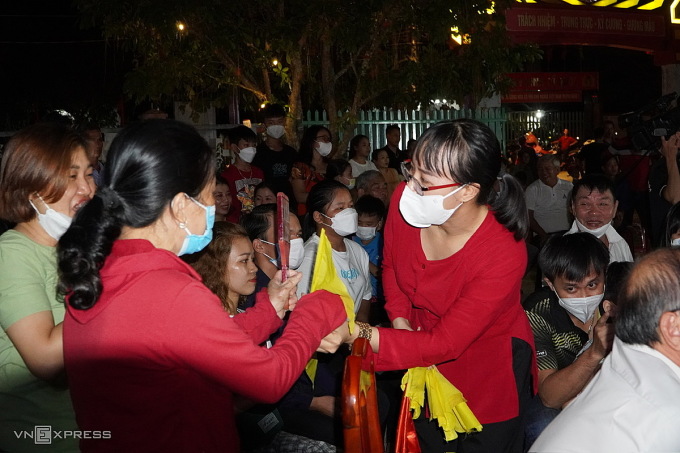
Performers of Bai Chon hold bamboo cards inviting everyone to join in singing Bai Choi. Photo: Thanh Dung
The journey to expand the safety net through the Bài Chòi festival to the people of Quang Nam encountered many difficulties due to the two peak years of the epidemic outbreak, limiting large gatherings. During the epidemic, the car carrying the artist group performed throughout Hoi An, Thang Binh, Dien Ban, Nui Thanh, Tien Phuoc, areas with a high concentration of potential workers. The motivation of artists like Cong Danh was when they saw "people surrounding them from inside to outside, not counting the number of live streams via social networks. There were nights when the performers were so excited that they forgot the lyrics, but luckily they were still able to remind each other in time".
The show always has games with small prizes to keep the audience engaged. When the singers call out to sing on stage, insurance officials weave through the crowd to hand out flyers. The outermost circle has a consulting table to answer questions about policies for those in need.
"Every night singing Bài Chòi is to bring social security policies to the people and to preserve the songs left by our ancestors. Culture must be preserved among the people and loved by the people," said Mr. Danh. He and the artist group could not count how many people decided to join the social security net after listening to the performance, but the news was slow and steady, many people took the flyers home, which meant they cared, otherwise they would have thrown them away on the spot.
Ms. Do Thi Bich Hoa, Head of the Communications Department of Quang Nam Province Social Insurance, said that in 2021, the province added more than 10,600 new people to voluntary social insurance during the outbreak. She admitted that it was difficult to determine how many workers entered the system through listening to Bai Choi singing, but affirmed that it was mutually beneficial to both develop social security and preserve the culture of Quang people.
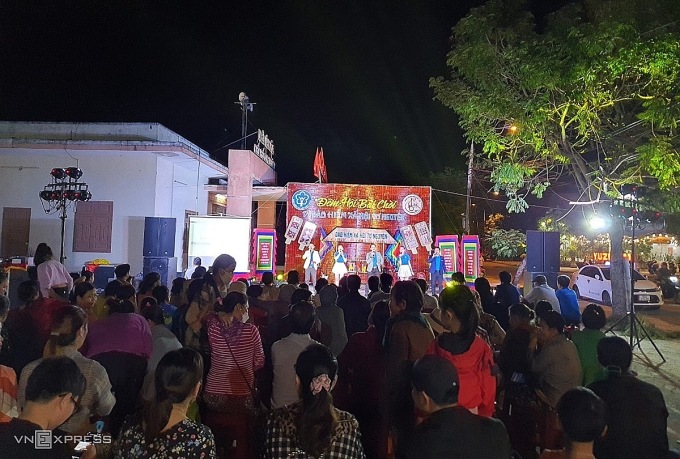
The Bai Choi festival always attracts a large number of participants. Photo: Thanh Dung
In addition to Bai Choi, Quang Nam has developed voluntary social insurance contributions in many forms. Workers can pay social insurance contributions each month by depositing tens of thousands of dong each day instead of paying all at once. Boat and cyclo unions gradually mobilize members with stable incomes into the system. With the state budget, the province will support an additional 5-10% of contributions for voluntary social insurance participants until the end of 2025.
"No matter what form of propaganda is used, the benefits and financial conditions are what determine whether workers participate or not," Ms. Hoa affirmed, expressing the common concerns of the industry after the pandemic, when the wave of job losses and loss of income becomes a barrier to expanding participation, while the trend of leaving the system with a one-time payment increases sharply.
Ms. Hoa explained that voluntary social insurance has two basic benefits: retirement and death benefits, so it is very difficult to have all five benefits like the compulsory sector. If following the contribution-benefit principle, the contribution rate of workers can be up to 30% instead of the current 22%. Meanwhile, people with a self-preservation mentality are more interested in health insurance.
"Can I get a free health insurance card?" is always the first question that social insurance officials in Quang Nam receive when mobilizing people to participate in the voluntary sector. Knowing that it is not available, many workers refuse outright, or hesitate "to study further" and then ignore it. Social insurance officials believe that if they add free benefits or pay continuously for 5 years, they will be granted a health insurance card, which will make the policy more attractive.
"The amended Law on Social Insurance, which adds a one-time maternity allowance of 2 million VND from the budget, is also a good thing, but most women will receive it. If health insurance is included, everyone over 15 years old will enjoy the benefits," she suggested.
Hong Chieu
Source link


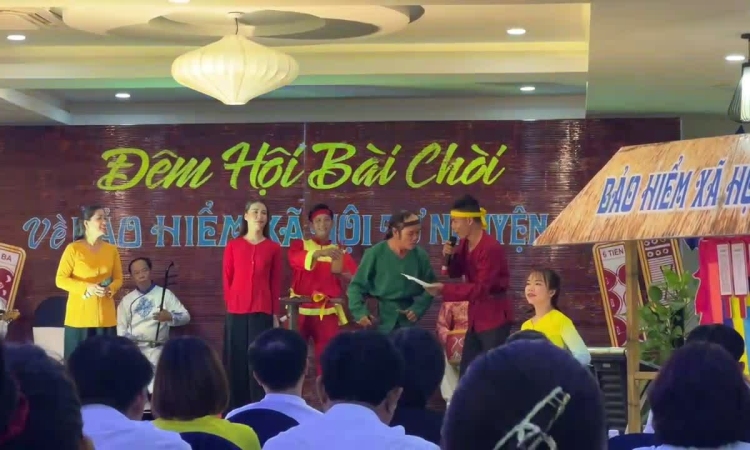

![[Photo] General Secretary To Lam chairs the meeting of the Central Steering Committee on preventing and combating corruption, waste and negativity](https://vphoto.vietnam.vn/thumb/1200x675/vietnam/resource/IMAGE/2025/9/29/fb2a8712315d4213a16322588c57b975)
![[Photo] Many streets in Hanoi were flooded due to the effects of storm Bualoi](https://vphoto.vietnam.vn/thumb/1200x675/vietnam/resource/IMAGE/2025/9/29/18b658aa0fa2495c927ade4bbe0096df)
![[Photo] General Secretary To Lam attends the ceremony to celebrate the 80th anniversary of the post and telecommunications sector and the 66th anniversary of the science and technology sector.](https://vphoto.vietnam.vn/thumb/1200x675/vietnam/resource/IMAGE/2025/9/29/8e86b39b8fe44121a2b14a031f4cef46)
![[Photo] General Secretary To Lam receives US Ambassador to Vietnam Marc Knapper](https://vphoto.vietnam.vn/thumb/1200x675/vietnam/resource/IMAGE/2025/9/29/c8fd0761aa184da7814aee57d87c49b3)
![[Photo] National Assembly Chairman Tran Thanh Man chairs the 8th Conference of full-time National Assembly deputies](https://vphoto.vietnam.vn/thumb/1200x675/vietnam/resource/IMAGE/2025/9/29/2c21459bc38d44ffaacd679ab9a0477c)


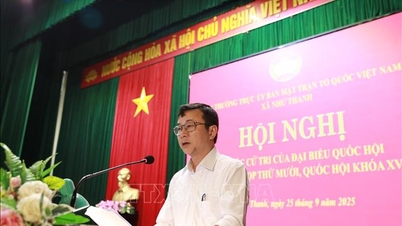

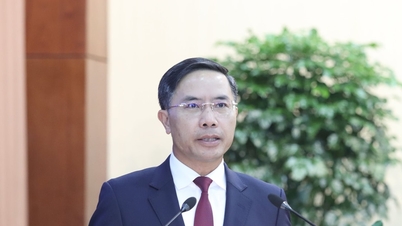






































































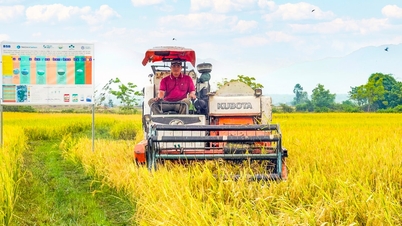

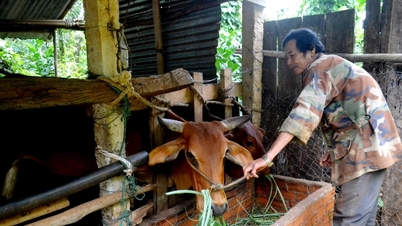
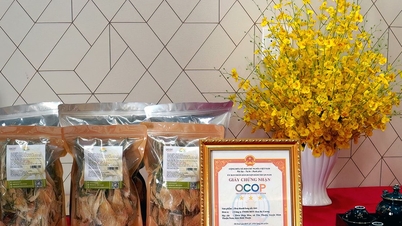



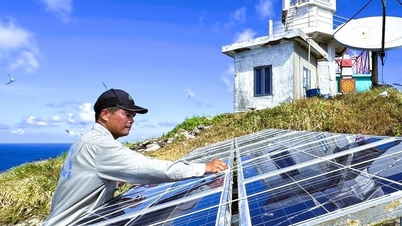









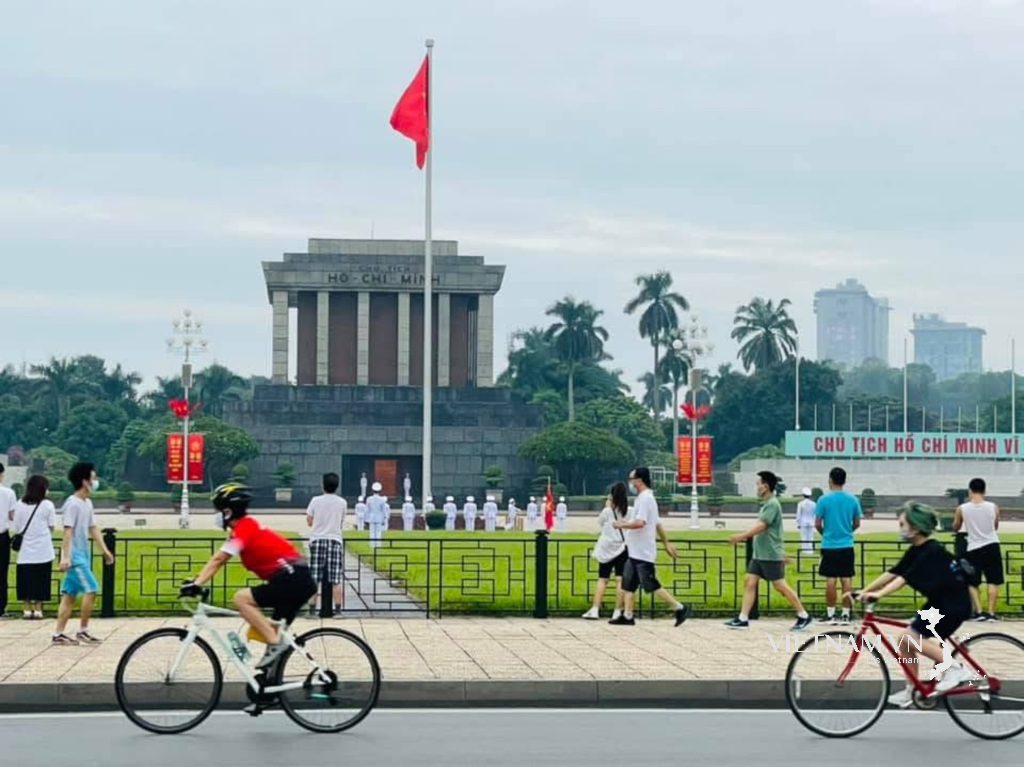
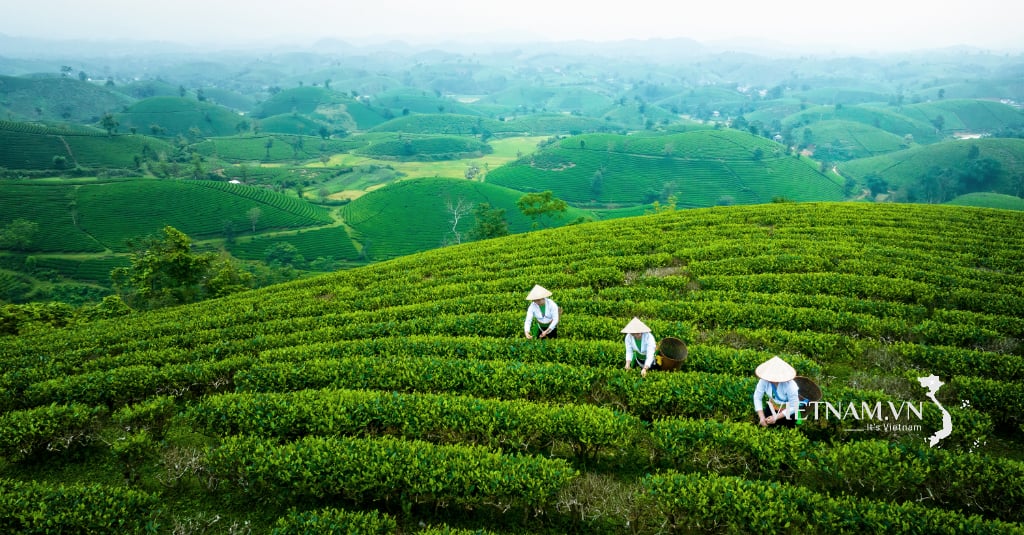


Comment (0)